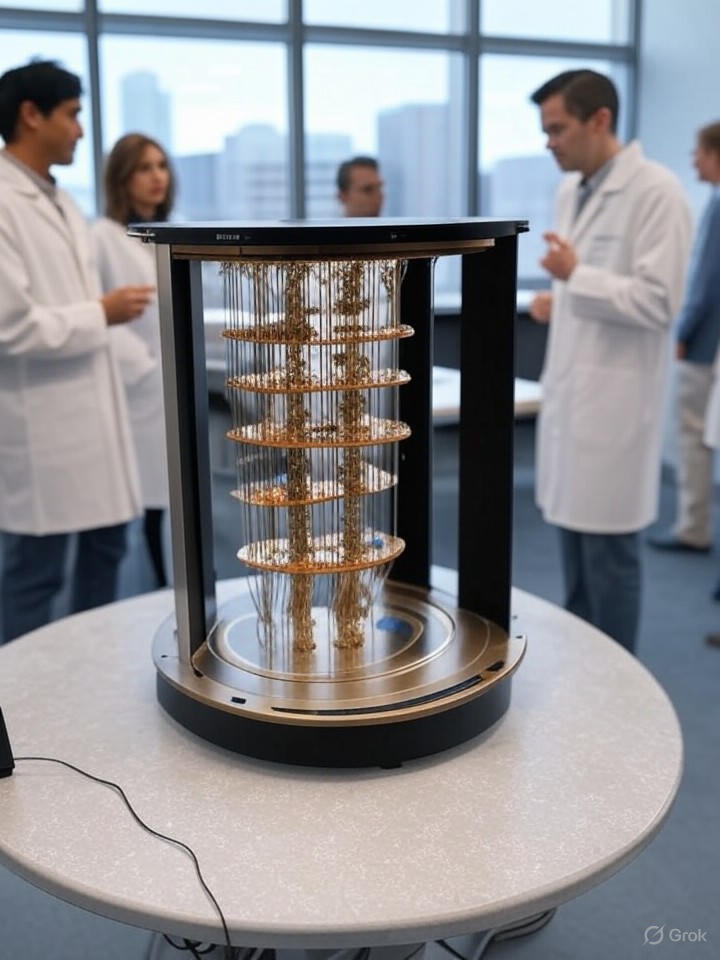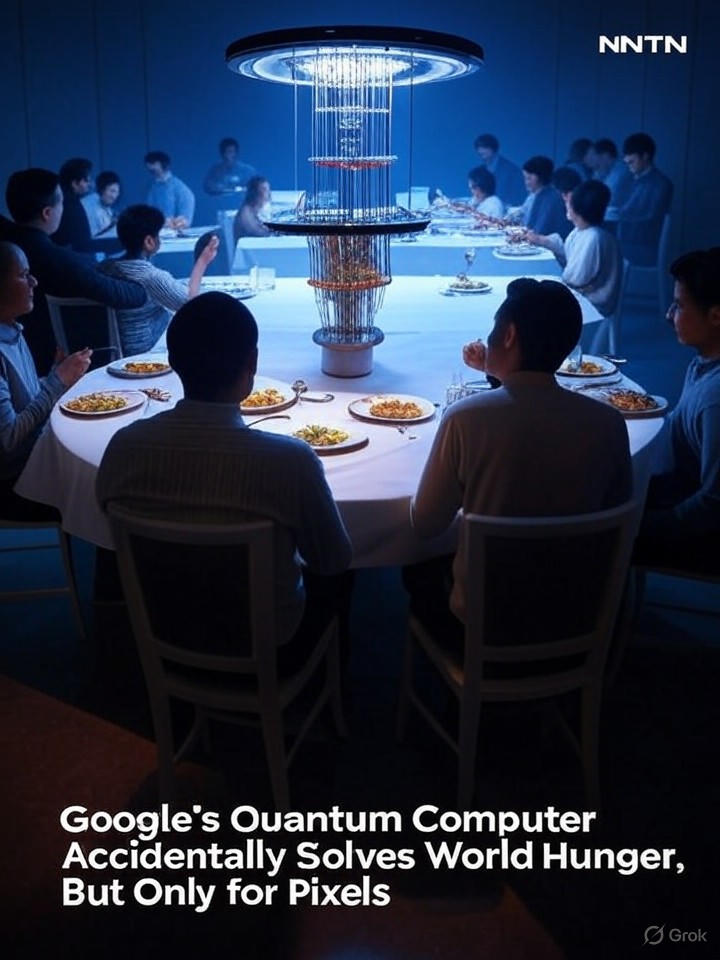MOUNTAIN VIEW, CA – In what can only be described as the most Silicon Valley mishap since the invention of the self-driving car that only works in parking lots, Google's quantum computer has accidentally solved world hunger. But before you toss out your canned goods and fire up the victory parade, there's a catch: it only works for pixels. Yes, those digital denizens of the metaverse are now feasting like kings, while the rest of us mere mortals rummage through our fridges for expired yogurt.
The breakthrough occurred during a routine test of Google's Sycamore quantum processor, which was supposed to calculate the meaning of life or something equally profound. Instead, in a quantum quirk that has physicists scratching their heads and investors popping champagne, the machine generated an algorithm that eradicates famine – but exclusively in virtual environments. Avatars in games like Fortnite and The Sims are suddenly plump and satisfied, munching on infinite virtual burgers that never run out.
Google spokesperson Alexa Byte enthused, "This is a game-changer! Literally. Our quantum tech has ensured that no pixel will ever go hungry again. Imagine the possibilities for VR dining experiences – all the calories, none of the guilt!" Meanwhile, humanitarian organizations are less impressed, pointing out that real-world starvation rates haven't budged an inch. "It's like inventing a cure for cancer that only works on cartoon characters," grumbled one aid worker, who wished to remain anonymous lest they be labeled 'anti-innovation.'
Critics argue this is just another example of Big Tech prioritizing flashy gimmicks over actual societal problems. "They solved traffic jams in SimCity, but my commute still takes two hours," tweeted one frustrated user. Google's engineers, undeterred, are already pivoting to quantum solutions for other global issues, like climate change – but only for Minecraft worlds, where polar bears can now frolic eternally on non-melting ice.
As the news spreads, stock prices for virtual reality headsets have skyrocketed, while shares in actual food companies plummet. Nutritionists warn of a potential 'reality famine,' where people might starve themselves trying to live vicariously through their well-fed avatars. In response, Google has announced a new app: Quantum Feast, allowing users to watch their digital selves dine on gourmet meals while they nibble on ramen noodles.
World leaders have mixed reactions. Some hail it as a step towards a utopian future where all problems are solved in the cloud. Others, like a certain orange-tinted former president, tweeted: "FAKE NEWS! My quantum computer would've fed REAL people. Tremendous!" In the end, while pixels party, humans are left pondering: if a quantum computer solves hunger in a forest of code, does it make a sound? Or just the grumble of empty stomachs?
Google promises updates soon, hinting at quantum tech that could solve poverty – but only for NFTs. Stay tuned, folks; the future is bright, binary, and bizarrely unhelpful.

